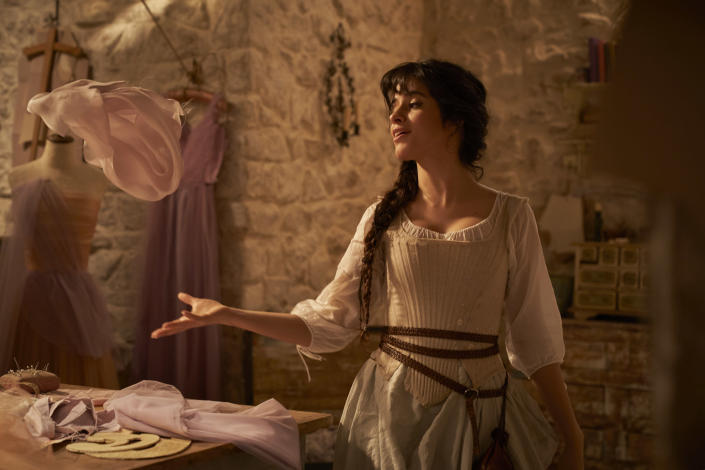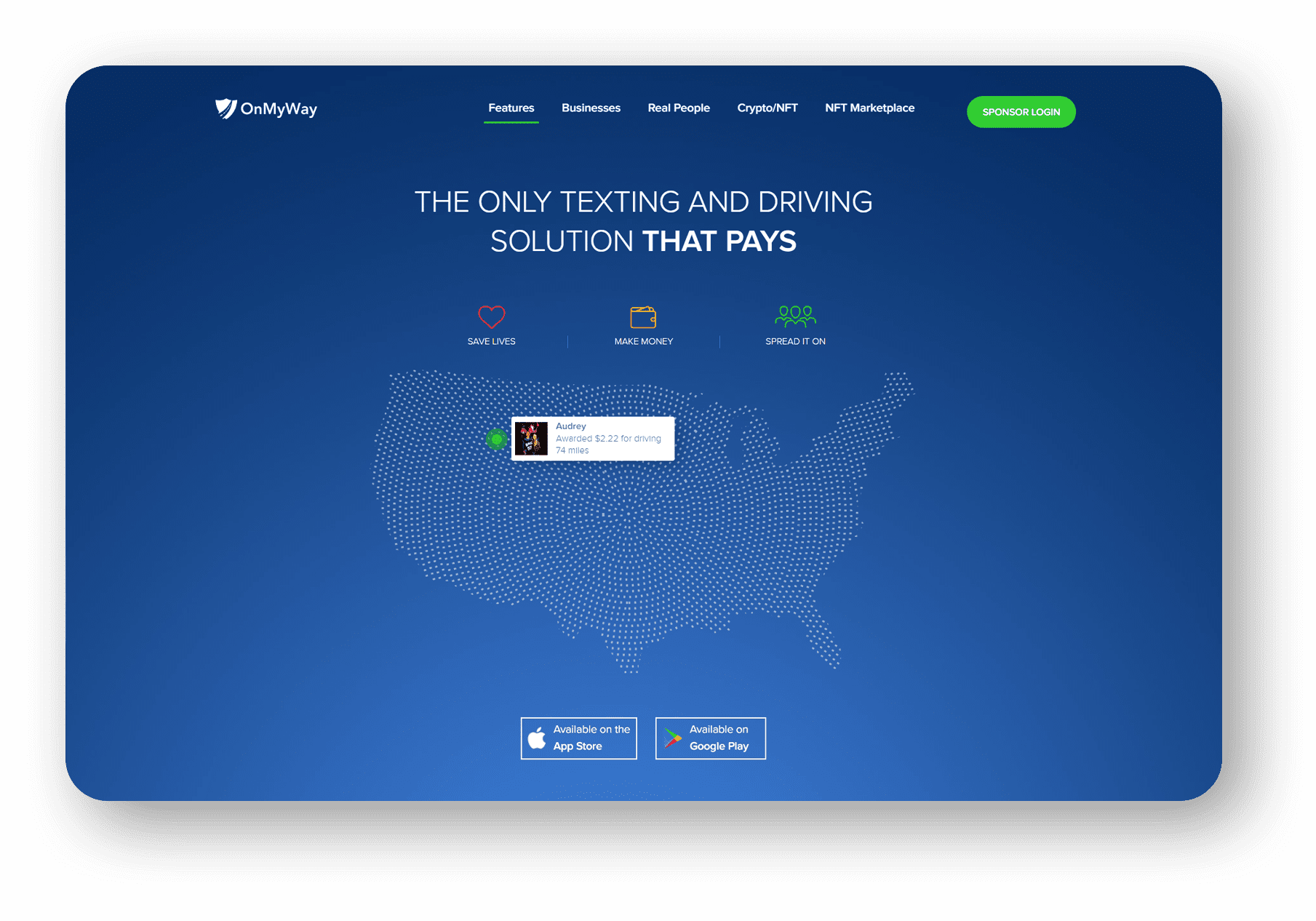
About a decade ago, Kay Cannon’s script for Pitch Perfect became one of the most endearing, funny and commercially successful female-led films in recent memory. It’s a sharp screenplay, filled with wit and self-awareness, and it’s realized beautifully with a top-notch cast, a light directing touch and music that, you know, works in the context of the film about a competitive college a cappella group. Cannon has earned several writing credits since then, including the sequels that followed Pitch Perfect alongside a handful of television episodes, too. Now, she steps behind the camera (only her second time in the role) to direct her own adaptation of one of the most classic fairy tales in global culture, that of Cinderella. Her version, a muddy mix of contemporary sensibilities in a non-descript middle-ages setting, is absent all the charm and enchantment of both her own earlier works and that which is typically inherent to the well-known narrative.
Versions of the Cinderella story exist in cultures around the world (a fact I only discovered when I wrote a college paper on this very fact, so indoctrinated to the Disney version was I), and nearly every version ends the same way: a lowly commoner ascends to the thrown, marrying the monarch simply by virtue of captivating his attention in one way or another. The pervasiveness of this particular tale of familial in-fighting, unjust oppression and happily-ever-after doesn’t seem to diminish our obsession with it, even as society’s ever-evolving views change the ways we appreciate it (or don’t). All that to say, Cannon had her work cut out for her from the get-go if her goal was, as it seems to be, to reimagine the fable for a contemporary, #MeToo moment while maintaining the fairy tale elements that make the story as enduring as it is. The resulting film, something like a jukebox musical (but not quite); something like a feminist rallying cry (but not quite); something like a slapstick comedy (but not quite) is instead just a hodge-podge of emotional tones and a mess of minor characters, all of whom have the potential to steal the show but none of whom do.
Our Cinderella this time around is Camila Caballo, a global pop star in her own right who’s dabbled in films between stadium tours. Perhaps she brings gravitas and confidence to those performances, where she has an entire stage at her disposal, pyrotechnics and costume changes galore and a crowd of thousands cheering her on. Here, she is woefully out of place as a mousy Cinderella with zero charisma who dreams of making and selling her own dresses, building a “girlboss” empire without having to rely on a man for any of it. This Cinderella is relegated to the family’s basement, though her “evil” stepmother (who is really just…misunderstood?) and step sisters (played by Idina Menzel, Maddie Baillio and Charlotte Spencer, respectively) don’t seem to demand many degrading chores of her. She’s just the orphan her father left behind when he died, so they can’t be bothered, apparently.
Meanwhile, in the palace, King Rowan (Pierce Brosnan) and Queen Beatrice (Minnie Driver) try desperately to get their son, Prince Robert (Nicholas Galitzine), to understand what his inheriting the throne really means and the importance of making a good match in marriage. While he’s simpering and moaning about how hard his life is, sister Gwen (Tallulah Grieve) pokes her head out now and then with her own progressive ideas about how to evolve the kingdom. Perhaps the most interesting part of Cannon’s reimagining of the story, Gwen is the most woefully underdeveloped part in the whole film; her role is ultimately pivotal in the happy ending Cannon has concocted, but instead of giving young girls (and audiences everywhere) already in love with this story a new, modern heroine to get behind while Cinderella does her ball/slipper/prince thing, the Princess is instead nothing more than a running gag throughout. It’s a frustrating choice, dangling as it does the idea of some real ingenuity in this stale old fable, but Cannon never commits to it, much less anything else
The best known musical versions of Cinderella are Disney’s mid-century animated version and that of Rodgers and Hammerstein, performed on stage as well as in several film adaptations (all of which are better than whatever this mess is). Here, Cannon and her creative team make the baffling choice to concoct some inexplicable blend of existing, classic pop songs (Rhythm Nation! Somebody to Love! Material Girl!) with new tracks (Caballo’s main theme, “Million to One” is already making the rounds on radio stations…), causing a new sort of dissonance or audio whiplash, bouncing between the two. Am I supposed to be jamming to familiar songs used in new and charming ways (though they aren’t, here)? Am I supposed to be charmed by new melodies meant to be future classics (none of which these will be)? Landing somewhere in the middle makes a mess of the entire musical format and renders it nearly impossible to enjoy any of the many splashy musical numbers.
There’s plenty more to be annoyed by in this adaptation (please, don’t even get me started about the mice and their “front tails”), but suffice it to say all the updating Cannon seems to be attempting here instead so drastically jumbles any singular vision she might’ve had for the story that it’s impossible to see any of it clearly. In the film’s final act, as Cinderella and the Prince try to find a way to be together—this heroine doesn’t want to give up her dressmaking dream, at least—there’s such potential for truly reinventing what “happily ever after” means for Cinderella that the way it’s all ultimately resolved is all the more disappointing. Though he adhered more closely to the traditional telling of the story, its heroine’s happiness seemingly dependent on marrying a prince, Kenneth Branagh’s 2015 version at least gives Cinderella the woman a past, a history, an emotional depth that ultimately drives her decisions and priorities. I maybe wouldn’t make the same choices she does, but I can at least understand why she’s on the path she’s on. There’s no such depth anywhere to be found in Cannon’s take, hard as it might try to modernize the narrative. And that ultimately makes this attempt to do so a laughable disaster.
Cinderella is now streaming on Amazon Prime.
OVERVIEW
OnMyWay Is The #1 Distracted Driving Mobile App In The Nation!
OnMyWay, based in Charleston, SC, The Only Mobile App That Pays its Users Not to Text and Drive.
The #1 cause of death among young adults ages 16-27 is Car Accidents, with the majority related to Distracted Driving.
OnMyWay’s mission is to reverse this epidemic through positive rewards. Users get paid for every mile they do not text and drive and can refer their friends to get compensated for them as well.
The money earned can then be used for Cash Cards, Gift Cards, Travel Deals and Much, Much More….
The company also makes it a point to let users know that OnMyWay does NOT sell users data and only tracks them for purposes of providing a better experience while using the app.
The OnMyWay app is free to download and is currently available on both the App Store for iPhones and Google Play for Android @ OnMyWay; Drive Safe, Get Paid.
Download App Now – https://r.onmyway.com
Sponsors and advertisers can contact the company directly through their website @ www.onmyway.com.













